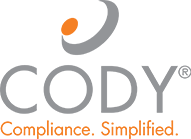4 Ways to Prepare for Increased CMS Oversight in the wake of Secret Shopper Success
Good news for Medicare agents and brokers: The Centers for Medicare and Medicaid Services (CMS) recently reported that of the 1,320 marketing events secretly shopped during the 2014 contract year Annual Enrollment Period (AEP), 85.5% were fully compliant.
This is a huge improvement from previous years, when CMS found more than half of secretly shopped events in violation of marketing guidelines. This data suggests that the program has been successful in reducing misconduct among health plans. However, don’t start celebrating just yet.
While CMS will likely move away from the secret shopping model, it will be shifting its focus to other key areas of compliance, including policies and procedures, Health Plan Management System (HPMS) memos, and the distribution of member materials such as Evidence of Coverage (EOC), Annual Notice of Change (ANOC), and Summary of Benefits (SB). Below are four ways to prepare for increased oversight in these areas:
1. Ensure that you’re current with all HPMS memos
On average, health plans receive 10 to 20 HPMS memos each week. With a number of these requiring action within a specified timeframe, it’s important plans track required responses and due dates. Memos should also be attached to the rules they impact. This will help support a health plan’s compliance should CMS audit their HPMS memos.
2. Track responses to policy and procedure documents
In addition to updating policy and procedure documents each year, health plans must ensure that all affected employees have reviewed and understand the updated information. Technology can help streamline this process and track who has read and understood this policy or procedure through their signed acknowledgement, or via testing.
3. Triple-check required member materials for errors
With so many requirements around the mailings of ANOCs, EOCs and SBs, it’s important to triple-check these documents for errors that could result in compliance violations. Outsourcing the creation of these materials to a qualified third-party advisor who understands all of CMS’ rules and regulations can help increase compliance and reduce risk. In addition, having documents reviewed by compliance experts who understand where errors can occur can help ensure accuracy.
4. Identify compliance issues before they are flagged by CMS
To ensure compliance with all mandated regulations and requirements, health plans should regularly pull reports that identify potential compliance violations before they are flagged by CMS. Real-time reporting technology can also help plans to identify information in a timely manner should they be audited.
Cody can help in all of these areas. Our revolutionary CodySoft® platform provides health plans with the tools they need to streamline operations and increase compliance with CMS regulations. Contact us today to find out more.
